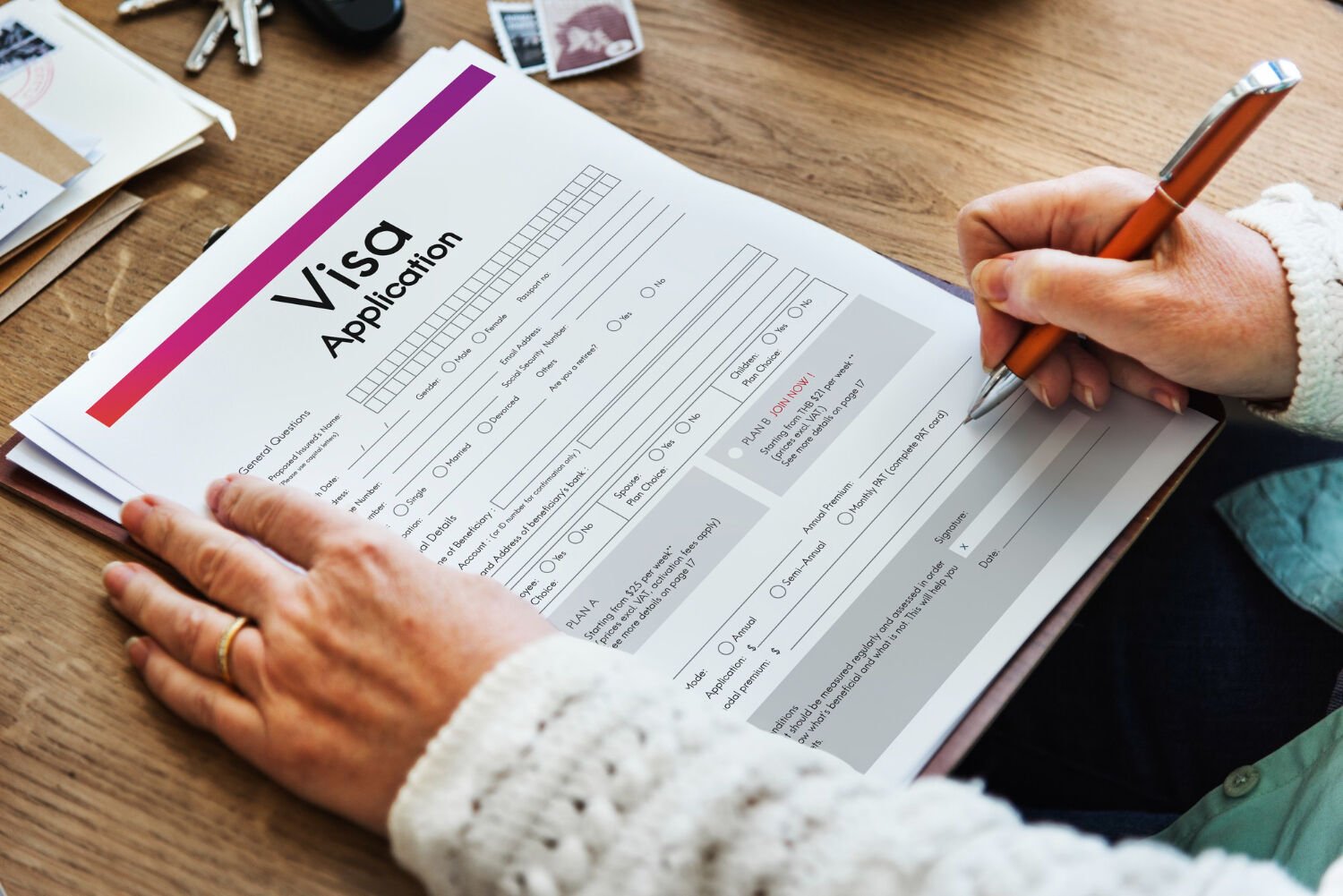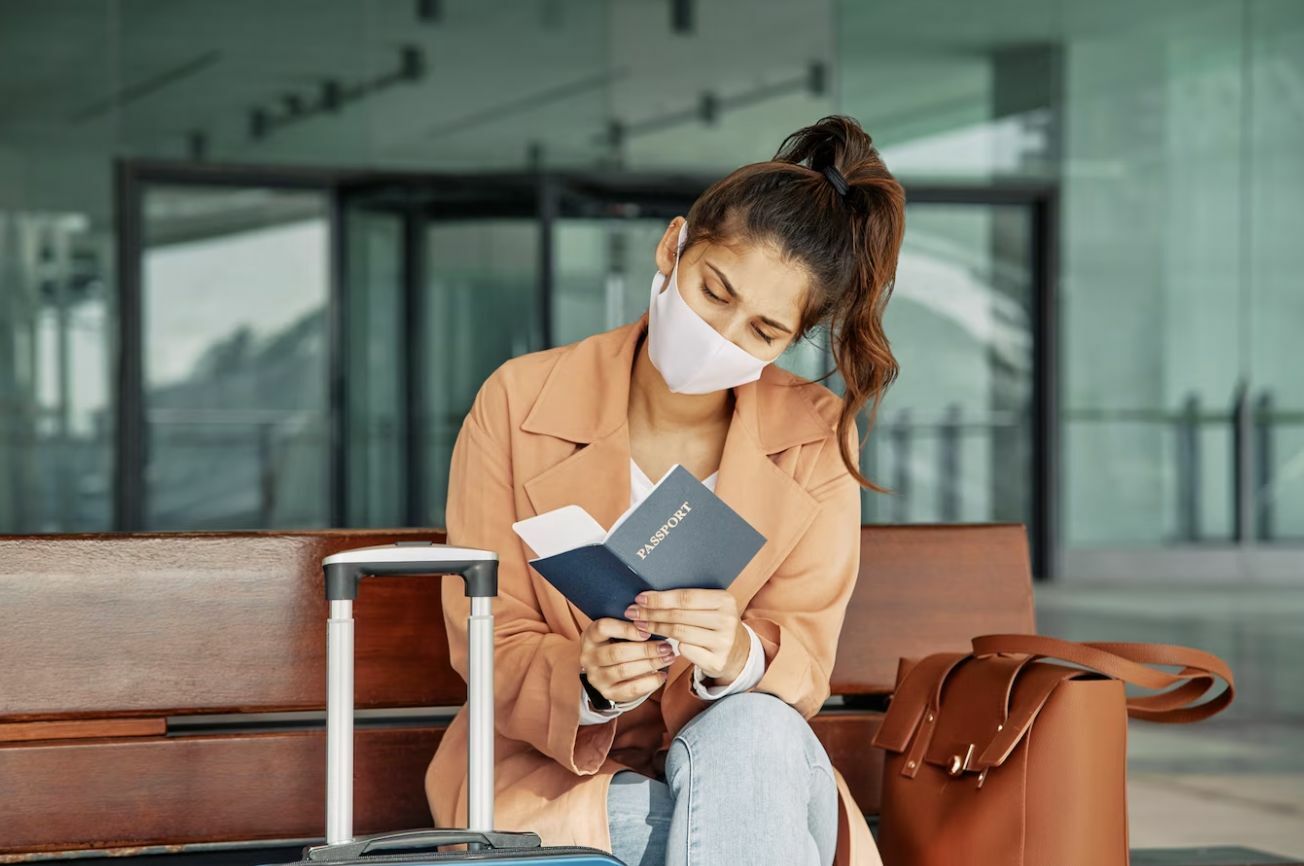How to extend your Tourist Visa in Thailand

Finding it just too hard to say ‘goodbye’ to Thailand? It may be the breathtaking beauty of golden temples, the culinary delight of street food, the exhilarating tuk-tuk rides through bustling streets, or perhaps, the soothing energy of azure blue waters that’s making you consider extending your Thai holiday. And who could blame you?
Rest assured, you’re not alone in your desire to extend your stay in Thailand. Every year, countless travellers fall under its hypnotic charm and start toying with their calendars, desperate to add a few more sunrises and sunsets in this mesmerizing Southeast Asian nation.
However, as all savvy globe-trotters know, travel glory doesn’t come without a bit of bureaucracy. But fear not, dear reader! We’re here to help you navigate this procedure, leaving you more time to ponder over your next Thai adventure. Let us break down the step-by-step process of ‘How to extend your tourist visa in Thailand.’
How long can you stay with a tourist visa in Thailand?

Tourist visas are vital for most foreign individuals planning to visit Thailand for leisure or recreation. The process for obtaining one can depend on the country of origin and the intended duration of the stay.
Currently, the most popular option is a 60-day tourist visa, which you can extend for an additional 30 days at a local immigration office. Before you can bask in the Thai sun, this visa must be obtained from a Thai embassy or consulate in your country of origin.
However, if you’re a national from one of the 64 countries that Thailand has a tourist visa exemption agreement with, you can enter the country without needing a visa beforehand. This visa exemption is granted upon arrival in Thailand, allowing you to stay in the country for 30 days without any pre-application needs.
An additional route, a visa-on-arrival, allows access to Thailand for 15 days and can be acquired at most major airports and land border crossings upon arrival. Despite a temporary extension from 15 to 30 days, this option has now reverted to 15 days.
How do you extend your tourist visa in Thailand?
Extending your visa in Thailand by an additional 30 days is a relatively straightforward process.
First, take note of the kind of visa you possess and the extent of the extension you require. Typically, tourist visas are granted for a 60-day duration but can have a 30-day extension tagged on. The going rate for an extension is 1,900 THB, which equates to around 60 USD.
Your next step is to make a trip to the Immigration Office serving the city where you’re residing (or the closest one). You can find these offices in major Thai hubs like Bangkok, Chiang Mai, and Phuket. It’s essential to bring along the necessary paperwork (and a pen to fill out some paperwork). This comprises your passport, photocopies of said passport, and a passport-size photograph. When it comes to passport photos, maintain an appearance as professional as possible.

Then, expect to fill out some necessary paperwork. The form, known as application form TM. 7, should be available at the Immigration Office or downloadable online. Detail and accuracy while completing these forms are crucial to avoid any slowdown in proceedings.
Upon submission of your completed forms and payment of the extension fee, the wait begins. Officially, it’s stated that the processing period for a tourist visa extension ranges from 7-10 days. However, based on various factors, this could be done in a day or extended up to 2 weeks.
When your extension gets the green light, you’ll have to collect your passport, now bearing a new visa, from the Immigration Office. It’s advisable to double-check the visa’s expiry date to ensure it corresponds with your intended stay.
What to keep in mind

Remember the golden rule of any significant journey – don’t procrastinate. Avoid the complications an overstay could bring. Thai authorities indeed carry a ‘Land of Smiles’ grace, but they appreciate you adhering to their visa mandates. That’s why it’s a good idea to not only plan ahead but also allow a little wiggle room in your schedule for this process. In certain circumstances, depending on your situation, the need may even arise to do a short border hop, leaving and re-entering the country to renew your visa.
Tips for a smooth visa extension process in Thailand
1. Arrive early
Immigration Offices in Thailand can get quite busy, especially during peak hours. Arriving early ensures you’re one of the first in line, saving you a lot of time and reducing stress.
2. Dress appropriately
When visiting the Immigration Office, it’s important to dress modestly and respectfully. Wearing appropriate attire shows respect for Thai customs and can positively influence your experience with officials.
3. Be polite and patient
Politeness and patience go a long way in Thailand. Thai officials appreciate courteous behaviour, and maintaining a calm demeanour can make the visa extension process smoother and more pleasant.
4. Double-check documents
Before heading to the Immigration Office, ensure all your documents are complete and accurate. Missing or incorrect documents can delay the process, so reviewing everything carefully is crucial.
5. Know the rules
Stay informed about the latest visa regulations and requirements. Familiarizing yourself with the rules helps you avoid unnecessary complications and ensures a seamless extension process.
Special cases and considerations
Overstaying your visa

Overstaying your visa in Thailand is illegal and carries severe penalties. The fine for overstaying is 500 THB daily, up to a maximum of 20,000 THB. Overstaying can also lead to detention and deportation. To avoid these consequences, extend your visa before it expires.
Re-entry permits
If you plan to leave Thailand and return within the validity of your visa, you will need a re-entry permit to keep your visa valid. Re-entry permits can be obtained at the Immigration Office or international airports. This permit ensures that your visa remains active upon your return.
Border runs
Some travellers opt for border runs to extend their stay in Thailand. This involves leaving the country and re-entering to obtain a new visa or visa exemption stamp. While this method is common, frequent border runs can raise suspicion with immigration authorities. It’s advisable to use this option sparingly and understand the risks involved.
COVID-19 considerations
The COVID-19 pandemic has led to changes in visa regulations and procedures. It’s essential to stay updated on the latest travel advisories and immigration policies. Check official sources regularly to ensure you have the most current information and comply with any new requirements.
By following these tips and being aware of special considerations, you can navigate the visa extension process in Thailand more effectively. Whether you’re extending your stay to explore more of the country’s beauty or for personal reasons, proper preparation and adherence to guidelines will help ensure a smooth and successful extension.
Latest Thailand News
Follow The Thaiger on Google News:


























